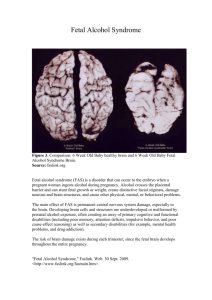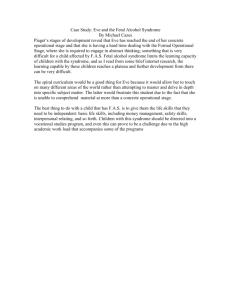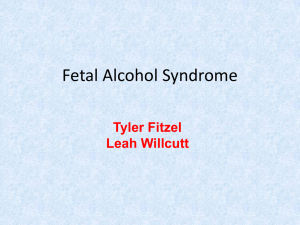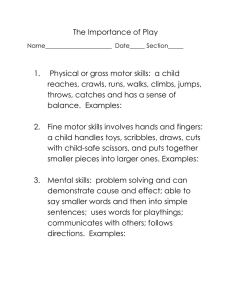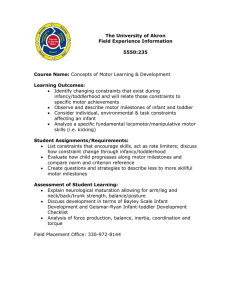November 4, 2005 Anna Klintsova, PhD (Host Galloway PT)
advertisement
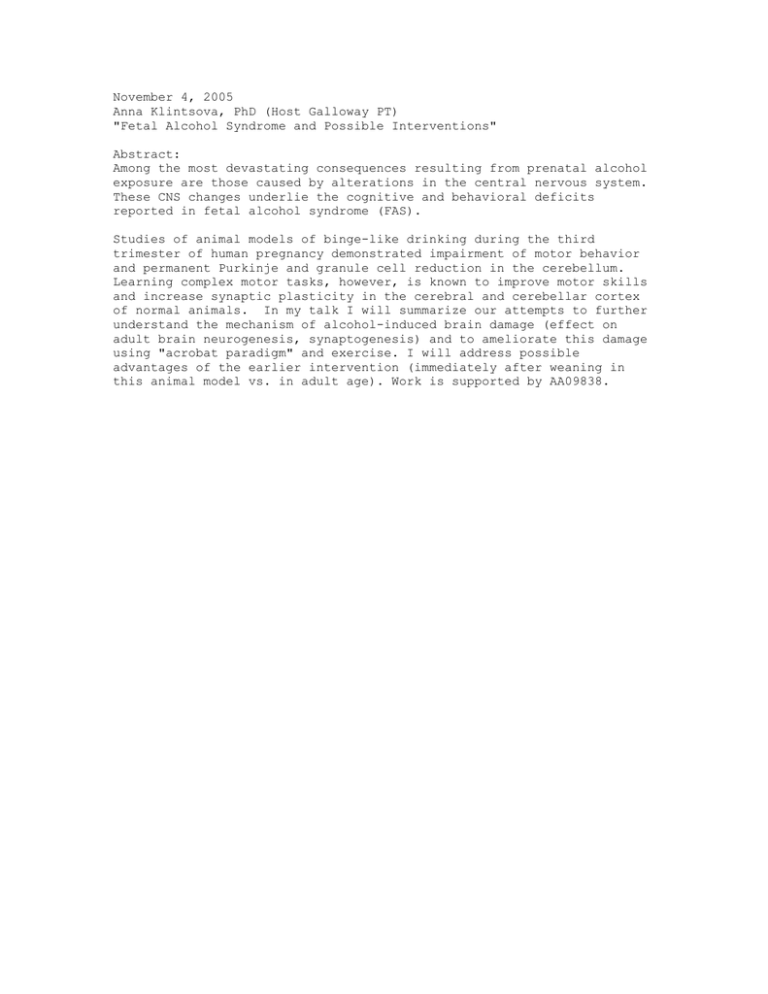
November 4, 2005 Anna Klintsova, PhD (Host Galloway PT) "Fetal Alcohol Syndrome and Possible Interventions" Abstract: Among the most devastating consequences resulting from prenatal alcohol exposure are those caused by alterations in the central nervous system. These CNS changes underlie the cognitive and behavioral deficits reported in fetal alcohol syndrome (FAS). Studies of animal models of binge-like drinking during the third trimester of human pregnancy demonstrated impairment of motor behavior and permanent Purkinje and granule cell reduction in the cerebellum. Learning complex motor tasks, however, is known to improve motor skills and increase synaptic plasticity in the cerebral and cerebellar cortex of normal animals. In my talk I will summarize our attempts to further understand the mechanism of alcohol-induced brain damage (effect on adult brain neurogenesis, synaptogenesis) and to ameliorate this damage using "acrobat paradigm" and exercise. I will address possible advantages of the earlier intervention (immediately after weaning in this animal model vs. in adult age). Work is supported by AA09838.
